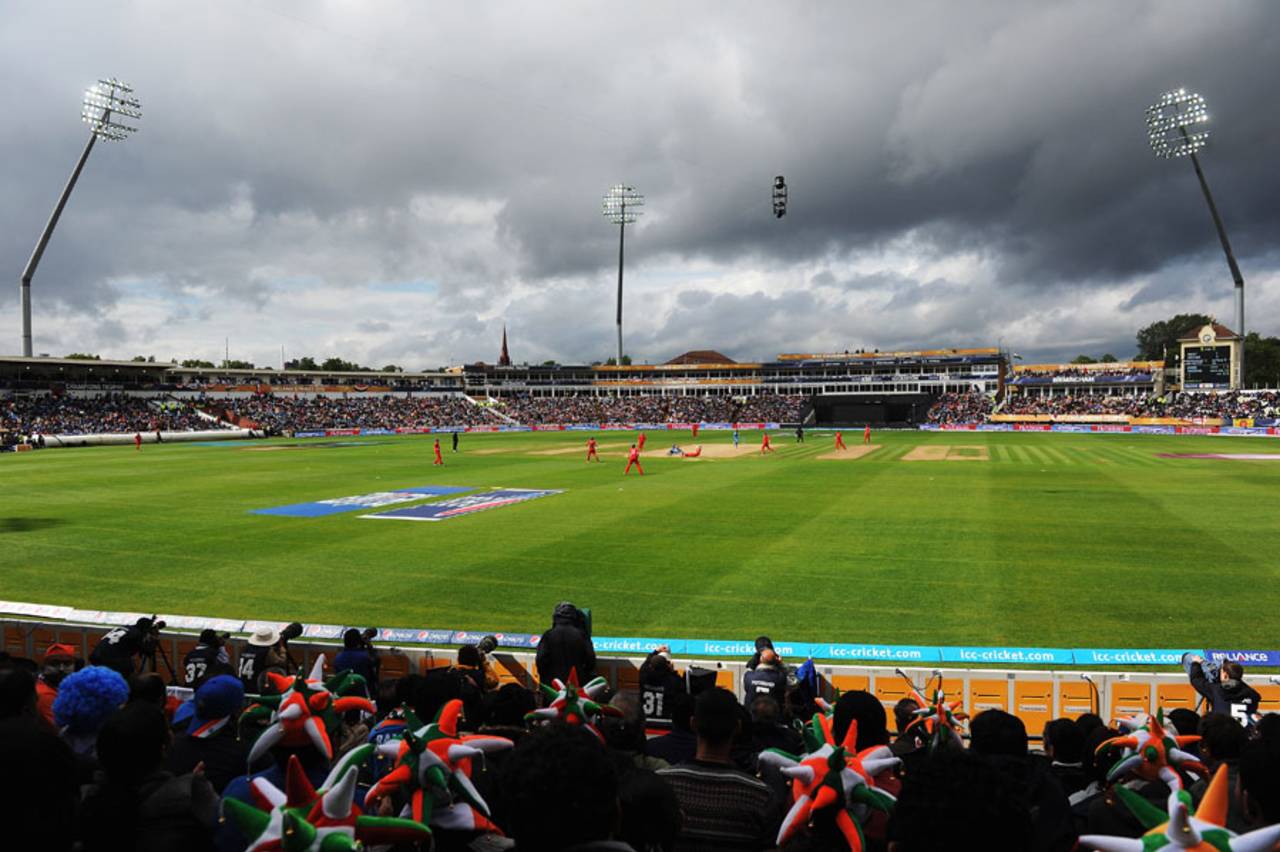There were no tearful acceptance speeches, no talk of designer dresses and no paparazzi as the ECB handed out its annual Business of Cricket Awards on Thursday night, but perhaps the event held significance beyond the community of county cricket administration.
With many of the counties making their bids for the next allocation of major matches at present, this was a last opportunity for them to enhance their cases and a final indication of the reputation of counties in the eyes of some of those closely involved in the game.
The outcome of the bidding process is vital for many counties. With most having invested heavily to redevelop their grounds and some having sunk deep into debt as a consequence, the battle to host major matches has never been more fiercely contested or more important to the financial stability of clubs.
The ECB is expected to allocate all major matches up until the end of 2019 before Christmas. That includes an Ashes series and World Cup in 2019, the 2017 Champions Trophy and a tour by India in 2018. They are then expected to hold another bidding process in the new year and allocate matches up until the end of 2022 before the end of April. The aim is that, by providing clarity to the grounds of what they can expect to earn over a longer period, they will be able to plan, attract sponsors and agree borrowing schedules with far greater ease.
While the ECB has taken some of the risk out of the process - the days when games were allocated to the highest bidder are gone and there is now something approaching a profit-share arrangement - the fact remains that, despite the amount of international cricket, there are not enough attractive major matches to share around. It is also anticipated that the ECB will require lower ticket prices in the future, which should result in a smaller outlay for counties involved in the bidding process.
So there will be winners and losers. The battle to host Ashes Tests appears especially fierce, with Lord's, The Oval and Headingley all possessing hosting agreements that effectively guarantee them a Test each. That leaves traditional venues such as Trent Bridge, Old Trafford and Edgbaston battling Cardiff, Southampton and Chester-le-Street for the remaining two. Bristol and Taunton can be added to that list when it comes to considering ODI venues, while Trent Bridge is also expected to bid for a package with more focus on limited-overs cricket.
It may prove relevant that Warwickshire scooped three of the nine prizes at the Business of Cricket Awards. Most pertinently, they won the Community Engagement Award. For when they gained an unfavourable allocation previously (they were allocated neither an Ashes Test in 2013 nor an India Test in 2014), they were informed that one of the reasons was due to their lack of community engagement.
It could also be relevant that Lancashire won the Facilities Award and MCC won both the Major Match Customer Experience Award and the Innovation Award. Nottinghamshire, for so long the leader of the pack in many ways, won the County Match Customer Experience Award which, while prestigious, does not directly relate to major matches. The newer international venues went unrewarded while Worcestershire won the County Recognition Award for sterling work in redeveloping their ground and expanding their business model despite trying circumstances.
There may be a wider significance to the allocation process. The result will go a long way to dictating the moods of several counties over the next few years and may define the future of Giles Clarke as ECB chairman. As things stand, Clarke has yet to confirm whether he will stand for re-election in March and has some work to do to appease counties concerned about the lack of cricket on free-to-air television, the ongoing
failure to maximise the benefits of T20 cricket and
falling participation numbers among other issues.
Colin Graves, the current deputy chairman, has yet to make it clear whether he will stand as an alternative choice, but a major match allocation that leaves counties dissatisfied will leave fertile grounds for change.
George Dobell is a senior correspondent at ESPNcricinfo
